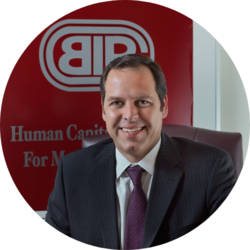
All managers, no matter what their titles are, are in essence human resource managers. Okay, “HR Manager” might not be their job title or description in the strictest sense of the words, but all management is HR management at its core, in that a company’s human resources are its employees, and it’s a manager’s job to, well, manage them.
Executives in managerial roles are responsible to hire, place, and oversee their “human resources” (hereafter referred to as “team” or “team members”) and set them up for success. Ultimately, the team’s success, or lack thereof, reflects directly on how well their managers did their jobs.
So, let’s discuss how high-impact managers organize their teams in order to succeed.
Hire for Talent
For a long time, conventional wisdom has dictated that hiring managers should focus on experience, education, or even intelligence when selecting their candidates. While these three qualifications are certainly not irrelevant, according to Marcus Buckingham and Curt Coffman in their book First, Break All the Rules: What the World’s Greatest Managers Do Differently, the most important hiring criteria should be talent (The Balance Careers).
Never overlook the raw talent a person may have for a specific task or role. Educational degrees don’t necessarily speak to abilities, and neither does experience (although it is probably a better indicator). What does speak to abilities are:
- Test results (especially experiential tests)
- Behavioral interviews
- Background checks – I’m not talking about criminal background checks (but definitely do those!). I’m talking about checking references and talking to the people who can give you frank assessments and concrete examples of your candidate’s abilities.
Play to Strengths
Many managers mistakenly believe that their job is to ferret out their direct reports’ weaknesses and turn them into strengths, but that notion isn’t only erroneous, it’s counterproductive. If someone on your team isn’t a “people person,” rather than wasting a lot of time (and possibly money) on training, coaching, and trying to force that leopard to change its spots … maybe don’t make that person your customer service representative. To do so would be an exercise in futility and end in frustration for you, that employee, and your customers.
Instead, find what they ARE good at and expend your energy there. Say Buckingham and Coffman, “People don’t change that much. Don’t waste time trying to put in what was left out. Try to draw out what was left in” (The Balance Careers). Is shy, somewhat-awkward Bob a whiz at organization and problem solving? Well then, he (and you) will be better served if he focuses on something like scheduling and/or quality control.
Mitigate Weaknesses
When we talk about playing to strengths, that doesn’t mean you should ignore weaknesses or never give anybody the chance to improve. According to Marcus Buckingham, head of people and performance research at the ADP Research Institute, the best managers mitigate their team members’ weaknesses in one (or a combination) of four ways (Harvard Business Review):
- If the problem results from a lack of skill or knowledge, “offer the relevant training, allow some time for the employee to incorporate the new skills, and look for signs of improvement.”
- Partner them with others whose talents are strong in the areas where theirs are weak, so they fill in each other’s gaps.
- Teach them a concrete technique that helps them accomplish something through discipline that doesn’t come naturally for them.
- Rearrange their work environment/responsibilities to render their weakness irrelevant.
Get Out of the Way
To make this next point about what great managers do to set their teams up for success, let’s talk about something they don’t do: they don’t micromanage. Instead, they communicate expectations clearly, listen to their team members’ input, make the necessary decisions to establish outcomes, and then get out of the way and let their people do their jobs (Michael Page). Employees who feel trusted are more apt to reach their potential and are even more determined to perform well because they realize their success is a result of their own efforts and not because their manager was pulling the strings through the whole effort.
Recognize Individuality (Play Chess, not Checkers)
An old cliché tells us that there is no “I” in “team.” But as Michael Jordan once said, “There may be no ‘I’ in ‘team,’ but there is in ‘win’.” The best managers don’t use a one-size-fits-all approach. They realize their team is made up of individuals and strategize accordingly.
In Marcus Buckingham’s words, “Average managers play checkers, while great managers play chess. […] In checkers, all the pieces are uniform and move in the same way; they are interchangeable. […] In chess, each piece moves in a different way, and you can’t play if you don’t know how each piece moves. More importantly, you won’t win if you don’t think carefully about how you move the pieces. Great managers know and value the unique abilities and even the eccentricities of their employees, and they learn how best to integrate them into a coordinated plan of attack” (Harvard Business Review).

By Fernando Ortiz-Barbachano
President & CEO of Barbachano International (BIP)
Barbachano International is the premier executive search and leadership advisory firm in the Americas (USA, Mexico, Canada, and Latin America) with a focus on diversity and multicultural target markets. Outplacement and Exe

